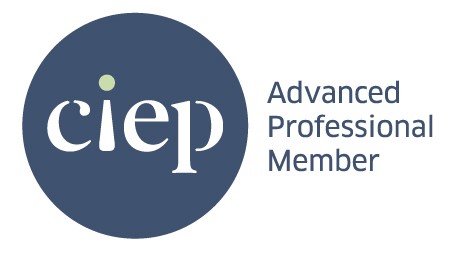
I am a freelance editor and proofreader, with particular expertise in arts and culture.
I relish the chance to work on texts concerned with art history, cultural criticism, film, and English literature, which are my academic specialisms. Whilst I normally edit non-fiction, I also feel confident to edit poetry and fiction (including novels, short stories, screenplays, theatrical scripts, and video game texts), since I have studied and analysed many classics in depth. Furthermore, I am very happy to edit texts in the social sciences.
The levels of editing that I can undertake range from initial manuscript reviewing, through various levels of copy-editing (e.g. substantive, developmental, line, structural, and technical), to final proofreading. That is to say, I can provide analytic feedback on high-level conceptual and structural points, and also help to refine details of style, grammar, and vocabulary.
I tend to use Word for copy-editing, and Acrobat for proofreading, but I am open to discussion if you prefer a different system.
If you think you might need a proofreader or copy-editor, but you are unclear about the terminology or what exactly we do, this FAQs page on the CIEP website is a helpful introduction. I can also explain the different services I provide if you write to enquire.
Please contact me if you would be interested in hiring me.
If English is not your first language, you may also wish to consider my teaching services.
Background
I first worked in the world of editing as a dictionary assistant in the English language teaching department at Oxford University Press.
I subsequently gained a first class degree in English language and literature from the University of Oxford, a distinction-level master’s in criticism and culture from Cambridge, and a PhD in history of art from the Open University. As a postgraduate, I provided my fellow students with feedback on their works in progress, on a reciprocal basis. After finishing my PhD, I was sought out by some of my peers who paid me to give further such input, both on student projects and on publications developed out of these.
I trained with the Society for Editors and Proofreaders (SfEP), which I joined in spring 2017. In March 2020 it became the Chartered Institute of Editing and Proofreading (CIEP). I also joined the Editorial Freelancers Association (EfA) in summer 2018.
My clients have included authors for whom English was not their first language, and an author with dyslexia.
My professional experience now includes postgraduate student theses and dissertations, academic journal articles, and books aimed at scholarly and popular audiences. One book I worked on was published by Bloomsbury and another by Taschen.
Please see my CV for further details of my career so far.
Testimonials
Ben copy-edited most texts of our title, Food & Drink Infographics: A Visual Guide to Culinary Pleasures. English was not our author’s mother tongue, so it was really great to have Ben – a native English speaking copy-editor with an Oxford degree in English language and literature – both to help correct minor technical errors of wording and syntax, and also to put the text into the most clear and natural-sounding form. This was a complex job due to the compendious nature of the book, with its almost encyclopedic content including international vocabulary and specialist jargon, and Ben handled the full range of material with consummate skill. Ben always met our deadlines, and his communication was excellent. He also offered very good value for money. I would not hesitate to recommend him!
Julius Wiedemann, Senior Editor, TASCHEN
In 2017, I was working on turning my PhD thesis into a book, which has since been published by Bloomsbury as John Le Carré and the Cold War. Ben really helped me with the revision and adaptation process: he provided editorial guidance on various levels, from recommendations for improvements in vocabulary and sentence structure, through to suggestions for clarifying my overarching arguments in each chapter. He read my work with sharp attention to detail and was particularly impressive in his ability to parse complex passages and communicate insightful feedback to me with precision. Because we have overlapping academic backgrounds in English and critical theory, and a shared academic interest in the Cold War, Ben was also able to provide specialist input on matters of fact and interpretation, all of which was very astutely observed and always in sympathy with what I was attempting to achieve as an author. As such, he is the first person acknowledged in my book.
Toby Manning
Thank you very much … Friends are far too polite and it has been hugely helpful to have a critical eye over the paper; in fact, it has made me more rather than less confident as I feel I have less to worry about.
Elizabeth Read, author of ‘Children’s Hospice Gardens’
Ben copy-edited my thesis as I was in the final stages before submission. He took time to explain the editing process very clearly before I committed to work with him, which was immensely helpful as I had never used a copy-editing service before. He also allowed me the opportunity to send over a sample for him to edit, so that I could get an idea of how he worked. His diligent, rigorous attention to detail was evident from this edit. He adhered to the deadlines that we had agreed upon, and he even sent some of the edited chapters well ahead of our agreed deadlines. I would not hesitate to recommend him as a copy-editor, as his work made such a difference to my thesis. I passed with no corrections, which would not have been possible without his copy-editing.
PhD student, SOAS
Ben has assisted me in a number of projects over several years. He has a fantastic eye for detail and for considering the texts he is working on in context. He meets deadlines unfailingly and has worked with great flexibility. We have developed a close mutual trust that has proved invaluable when refining articles for different audiences. I cannot recommend him highly enough.
Lecturer, Queen’s University Belfast
I used Ben’s services to copy-edit a master’s dissertation in English. In addition to pointing out spelling and grammar mistakes, Ben was also meticulous in his attention to detail; he went through my dissertation with a fine-tooth comb. Ben used Word’s Track Changes function to suggest amendments, and inserted comments on some inconsistencies in my argument, noting redundancies and repetition and referring to parts of the essay that needed further clarity. Ben further provided insightful comments that were always constructive and made me stop and think more about what I was trying to express. I learnt so much about the way I write, and how I could write in a much more concise and structured way. Grammar has never come easy for me; even as a native speaker, I tend to rely on instinct and what feels right. Ben did not just point out errors in my writing but also gave the grammatical reasons why it was incorrect. Reading Ben’s comments was incredibly rewarding because I was able to avoid the guesswork of my getting the grammar correct. So detailed were Ben’s comments that I kept them all in a folder, and still refer to them in my current studies. It was an incredibly productive relationship working with Ben, that far exceeded my expectations.
Master’s Student
Rates
The following details should be taken as guidelines only; every job and client is unique and I am open to negotiation.
I normally charge at least £30 per hour for proofreading, £35 per hour for copy-editing, and £40 per hour for developmental editing. These are the CIEP suggested minimum rates, each rounded to the nearest five pounds. Please be aware that different people and organizations distinguish between proofreading and copy-editing in various different ways, but my rates reflect the CIEP definitions.
It is not possible for me to specify a standard working speed in terms of words or pages per hour, as this can vary widely depending on the text in question and the edit required. Developmental editing can sometimes be as slow as 1 page (250 words) per hour, whilst proofreading can sometimes be as fast as 13 pages (3,250 words) per hour.
For proofreading or copy-editing I will normally ask for an upfront payment of £100 to look over your complete document and edit a 2,000-word sample that I will select myself. This gives you a chance to assess my work, and it allows me to gauge my speed and provide an estimate for the rest of the project. Due to the specific nature of developmental editing, I cannot provide a sample for such jobs, so in those cases I simply ask to see your text in order to give you a free estimate.
I charge a premium if your proposed schedule would require me to work long hours, or over a weekend or holiday; this will depend on my availability.
I will rarely take on a job that pays me less than £100 in total, so if you require me to work on a very short job, you should expect the price to be rounded up.
